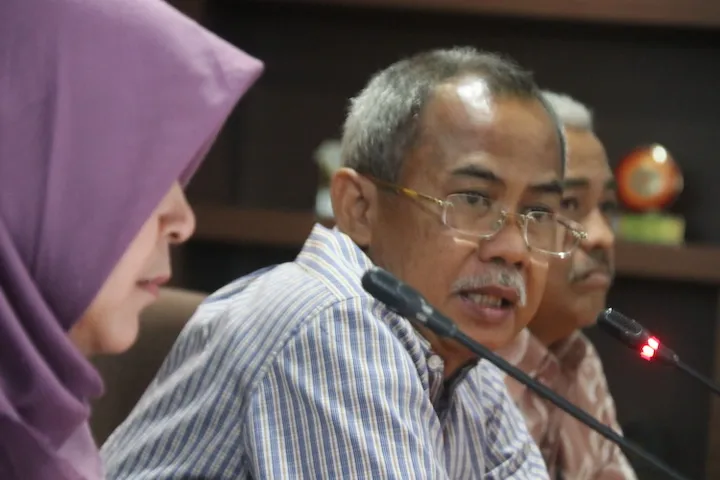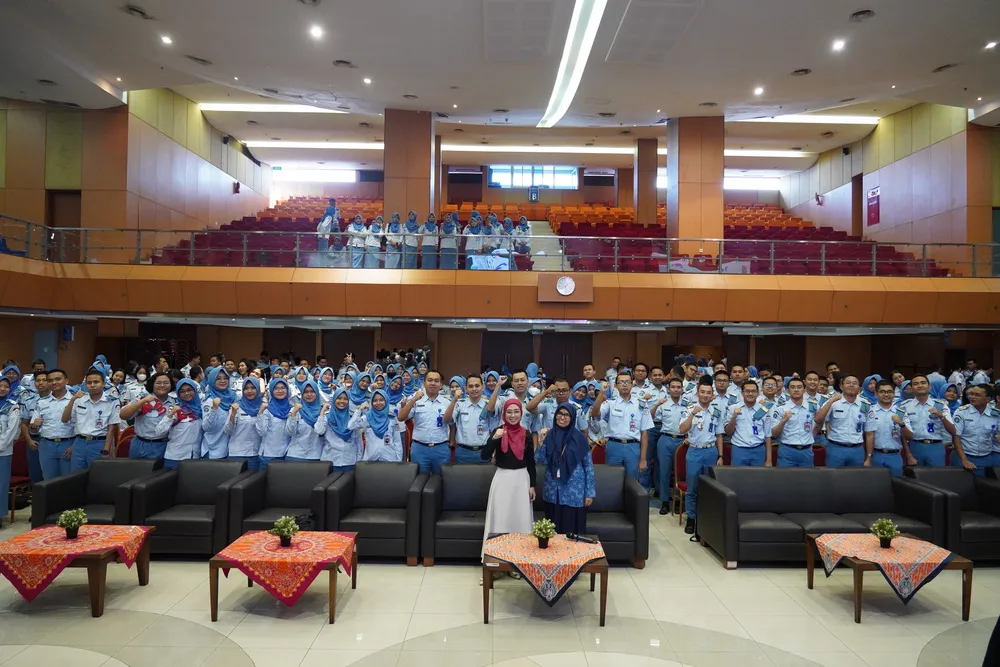BPS DIY and Polstat STIS: Coordination Ahead of the 2020 PKL

The academic year has changed, and it's time for third-year Polstat STIS students to begin preparations for their Field Work Practice (PKL), planned for the Student City of Yogyakarta. To coordinate preparations for the PKL, Polstat STIS received a visit from all the leaders of the Statistics Indonesia (BPS) of the Special Region of Yogyakarta (DIY) on Thursday (12/12). In his opening remarks, the Director of Polstat STIS explained that the PKL takes place at a different location each year. Besides providing new insights, the students also gain an overview of field conditions when entering the workforce through the PKL.
Dr. Heru Margono, M.Sc (Head of the Yogyakarta Province BPS), who was present along with all the district/city BPS heads throughout the province, welcomed the planned PKL activity in his jurisdiction. He hoped that the local government would benefit from the experience and application of the knowledge the students would gain from this PKL.
Participants in the PKL, which will be held from March 2-14, 2020, are students from the Diploma III and Diploma IV study programs. The theme raised in the D-III Study Program PKL is the National Labor Force Survey (Sakernas) data which aims to improve the quality of Sakernas data. While the D-IV Study Program takes four sub-themes, namely Digitalization of Village Potential (Podes), SDG's Environmental Pillar, Digital Economy, and Big Data. Podes digitalization is one of the developments of Podes data collection activities routinely carried out by BPS. In this PKL, students will make breakthroughs through technology-based Podes data collection, both by using Computer Assisted Personal Interviewing (CAPI) and web-based data collection. Podes digitalization is also planned to be integrated with the existing Village Information System in each region. The integration plan received a positive response from the heads of district/city BPS. Ir. Didik Koesbianto, M.Si (Head of BPS Bantul Regency) revealed that the idea is certainly an important point because it is not only beneficial for BPS, but also local governments, so it is hoped that it can strengthen the One Data Portal in DIY. The results of the Podes data collection will also be used for several studies utilizing Small Area Estimation (SAE) and Big Data, which are currently trending topics at BPS (Statistics Indonesia).
In addition to leveraging advances in information technology to develop the system, the students will also continue to collect household data during this internship. Therefore, information from the Yogyakarta BPS leadership regarding the characteristics of the region and local community, as well as potential field challenges, will provide valuable input for the students. With ongoing coordination between Polstat STIS and BPS Yogyakarta, it is hoped that the internship will run smoothly and successfully.
Related News

Polstat STIS and ENCE Strengthen International Collaboration Through the General Lecture “Data Revolution for Official Statistics”

Politeknik Statistika STIS Achieves “Excellent” Campus Accreditation
Politeknik Statistika STIS has achieved an outstanding milestone by earning an “Excellent” campus accreditation from the National Accreditation Boa...

63rd Graduation Ceremony of Politeknik Statistika STIS
On Saturday (September 13), the 63rd Graduation Ceremony of Politeknik Statistika STIS was held for the DIV Program Class of XXVIII and the DIII Pr...

Non-Academic Public Lecture on Public Speaking: Speak to Be Heard, Not Just to Be Listened To
On Thursday, July 3, 2025, Politeknik Statistika STIS held a non-academic public lecture on public speaking at the Politeknik Statistika STIS campu...
